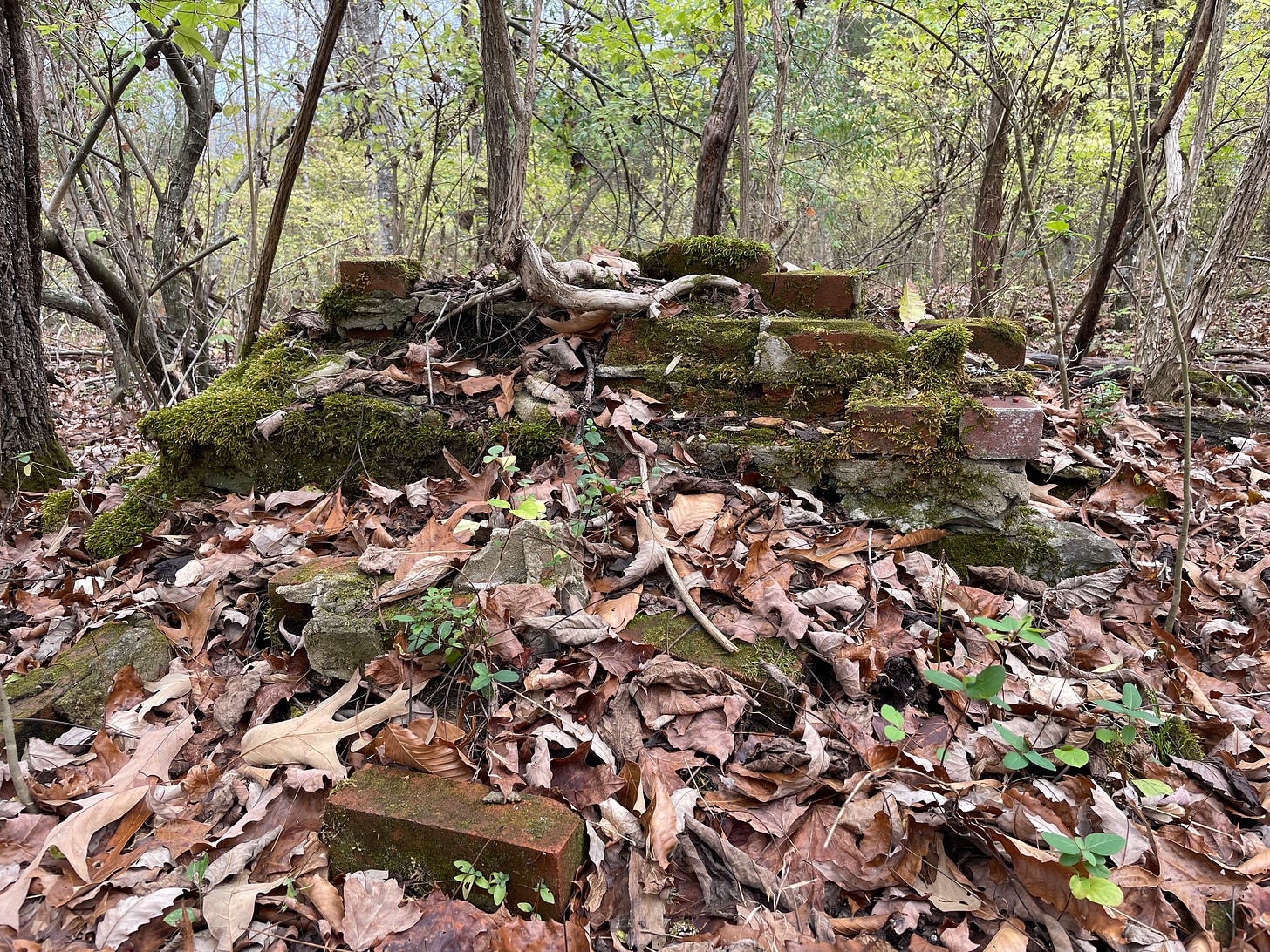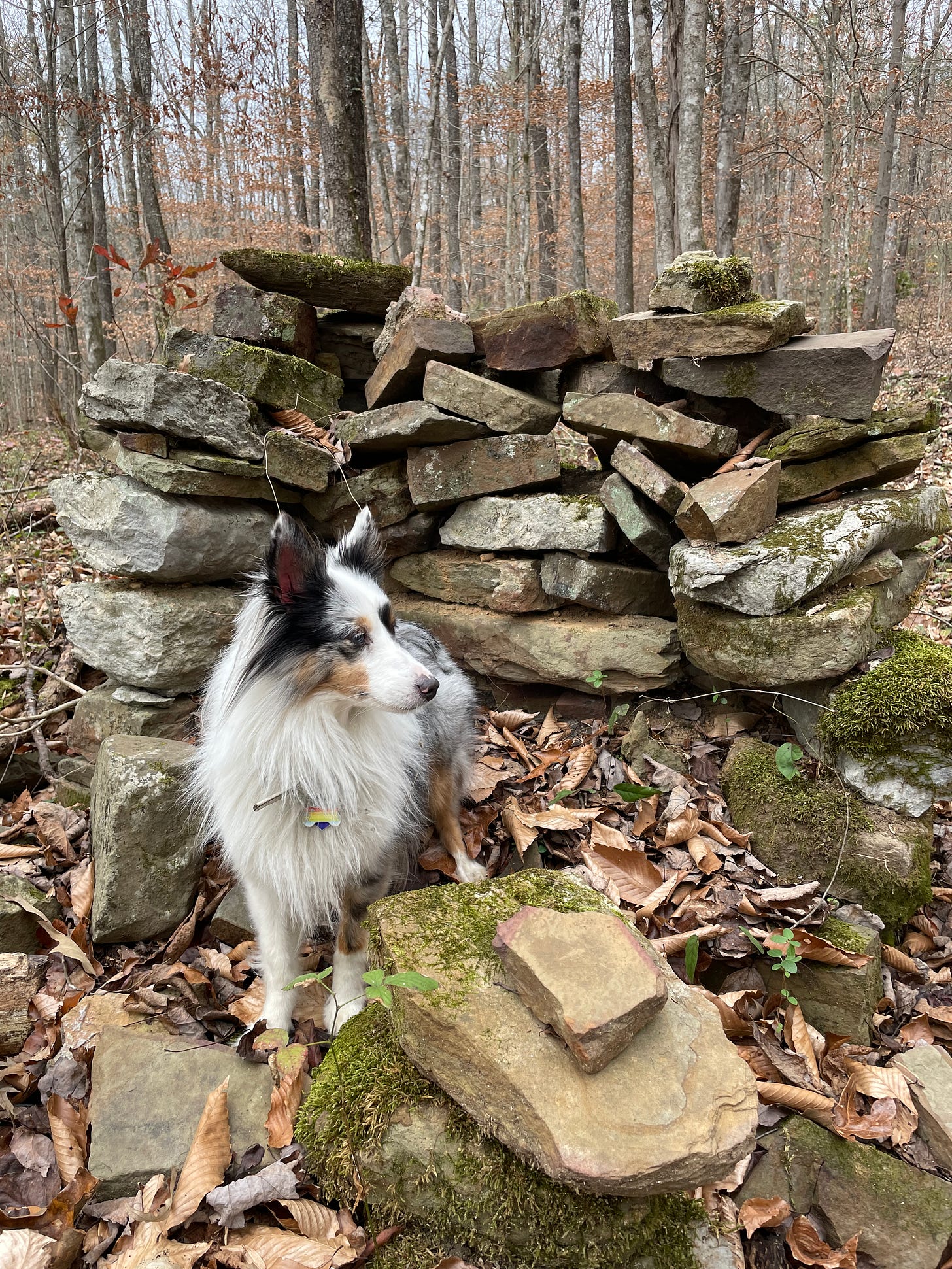This Year, Give the Gift of Connection
Reclaim the magic of the holidays with meaningful gestures.
The holiday season is now upon us, and many folks are heading out to take advantage of all the big deals or recovering from such. Others will be doing the same with their keyboards. And if it is working for you, that’s great. Woot! I even have ideas I’ll share later.
Yet in today’s consumer-driven society, gift-giving can feel overwhelming and impersonal, leaving both the giver and the receiver unsatisfied. It doesn’t have to be that way. Shifting our focus from material value to emotional significance can transform this tradition into a truly meaningful experience.
For those interested in building nourishing communities, changing up your gift-giving priorities can be a simple first step in that direction. Thoughtful gift-giving is an antidote for disconnection.
People have given each other gifts since the beginning of recorded history, and likely for quite a bit longer. Gifts are a way to build relationships, express feelings, create memories, promote well-being, express values, reward past behaviors, and demonstrate generosity.
Status games in gift-giving undermine the positive social aspects of gifts with an ego contest. Daring to be vulnerable and making a thoughtful choice can strengthen relationships and feelings of appreciation and can boost the gift giver’s happiness.
What Makes a Gift Meaningful?
A meaningful gift is not defined by its price but by its emotional resonance. It often reflects:
Understanding of the Recipient: Gifts that align with the recipient's interests, values, or needs show that the giver truly knows and cares about them.
Shared Experiences: Items or gestures that evoke shared memories or create new opportunities for connection carry emotional weight.
Personalization: Customizing a gift—whether through a heartfelt note, a handmade item, or a specific theme—amplifies its significance.
The Downside of Impersonal Giving
Rushed or obligatory gifting can have unintended negative effects, such as:
Misalignment: A gift that feels thoughtless may unintentionally signal a lack of interest.
Stress and Financial Strain: Overcommitting to expensive or last-minute purchases can leave the giver feeling anxious or regretful. This can create feelings of resentment rather than joy.
Perception of Forced Reciprocity: Some gift receivers interpret gifts as a debt that must be repaid, leading to feelings of obligation and resentment, the opposite of what the giver intended.
Wastefulness: Unwanted gifts often end up unused or discarded, which can feel wasteful for both parties. What is even the point?
Tips for Giving Meaningful Gifts
Focus on Emotional Value: Ask yourself what will make the recipient feel loved, appreciated, or understood.
Invest Time, Not Just Money: A handwritten letter, a framed photograph, or a simple act of service can carry more meaning than an expensive gadget.
Encourage Experiences: Tickets to a concert, a cooking class, or a shared adventure create lasting memories.
Ask Thoughtful Questions: If unsure, consider what the recipient talks about, their current challenges, or their aspirations.
Practice Gratitude: Gifts are an opportunity to express how much someone means to you. Don’t underestimate the power of your words alongside the present.
The Gift of Presence
Often, the most meaningful "gift" you can give is your time and attention. Quality time can strengthen relationships more effectively than material items when both people value connection. For those feeling disconnected from loved ones, prioritizing presence over presents can lead to greater fulfillment.
When Gifts Go Beyond Materialism
For those seeking to redefine their holiday traditions, consider adopting a giving philosophy that prioritizes acts of kindness, donations, or volunteering. Teaching children and others in your circle the joy of giving back can create a ripple effect of generosity and gratitude.
When Responses Can Be Revealing
Sometimes even the most well-planned, thoughtful gift won’t land, or won’t be appreciated for the effort put in. While this doesn’t have to be a deal breaker for the relationship, this should be a time for reflection and conversation.
People are quite different in their motivations and interests. Behavior around giving and receiving gifts can be an indicator of these hidden feelings.
When a thoughtful gift doesn’t work out, it is an indicator that a meaningful conversation is overdue, and it can function as an invitation to that vulnerable space. While this may sound scary to those afraid of confrontation, it is only through allowing oneself to be vulnerable in this way that real connection can happen. Also, having vulnerable conversations gets easier with practice.
Still struggling? Therapy can be a great place to practice this kind of conversation and work through fears that may keep you from having the relationships you want.
Final Thoughts
Meaningful gift-giving is less about what you give and more about how it makes someone feel. By centering your efforts on understanding, emotional resonance, and shared connection, you can reclaim the joy and purpose of this time-honored tradition.
This season, let’s embrace the power of meaningful gifts—not just to celebrate the holidays but to nurture the bonds that make life truly rich.
Housekeeping
The local ginkgo trees seem like they might reluctantly be turning gold at last. Most all of the others are already bare, which reveals the history hidden by summer foliage.
When I lived in Alaska, I used to say that the snow covers a multitude of sins. Now that I’m back in the Southern half of the lower 48, it is the kudzu and other greenery.
As WWII started to heat up, and this area was tapped to play a role in the Manhattan Project, locals were given two weeks’ notice to move out and no money for the move. To seal the deal, the Feds bulldozed their abandoned homes, creating a perimeter of secrecy for that critical mission.
It worked, and today, we live in a world without Imperial Japan. But every winter, the bones of that sacrifice resurface, and you can see them if you know where to look.
These piles of bricks and stones mark the remains of the old hearths and foundations built by pioneers.
There are also smoothed-over ruts in the ground from the bulldozers and patterns in the tree growth that tell the tale if you know what to look for.
Everywhere, this hidden history is around us.
If you have a moment and the inclination to look for it, behold the glory of the lives that passed before us, leaving us with an enviable set of problems compared to what they faced. Problems they were willing to give their lives for us to reach.
On the Bookshelf
With luck, I’m getting some reading done right now. Shhhh, if Poppet wakes up, that’s all over.
Help Keep This Conversation Going!
Share this post on social media–it costs nothing but helps a lot.
Want more perks? Subscribe to get full access to the article archive.
Pledge to get video and chatroom starting in November 2024.
Support from readers like you keeps this project alive!
Diogenes in Exile is reader-supported. If you find value in this work, please consider becoming a pledging/paid subscriber, donating to my GiveSendgo, or buying Thought Criminal merch. I’m putting everything on the line to bring this to you because I think it is just that important, but if you can, I need your help to keep this mission alive.
Already a Premium subscriber? Share your thoughts in the chat room.
About
Diogenes in Exile began after I returned to grad school to pursue a Clinical Mental Health Counseling master’s degree at the University of Tennessee. What I encountered, however, was a program deeply entrenched in Critical Theories ideology. During my time there, I experienced significant resistance, particularly for my Buddhist practice, which was labeled as invalidating to other identities. After careful reflection, I chose to leave the program, believing the curriculum being taught would ultimately harm clients and lead to unethical practices in the field.
Since then, I’ve dedicated myself to investigating, writing, and speaking out about the troubling direction of psychology, higher education, and other institutions that seem to have lost their way. When I’m not working on these issues, you’ll find me in the garden, creating art, walking my dog, or guiding my kids toward adulthood.
You can also find my work at Minding the Campus










